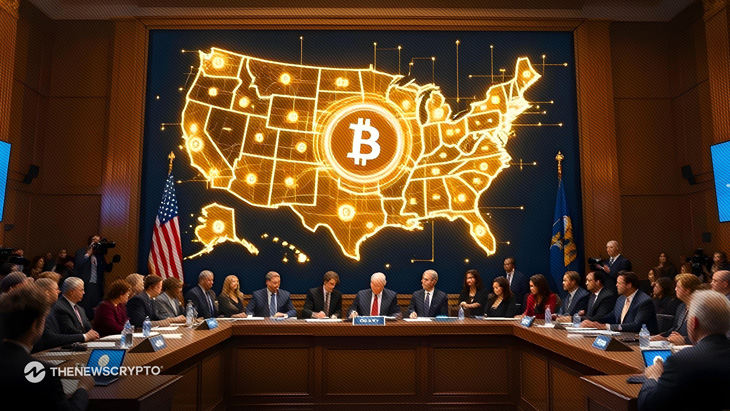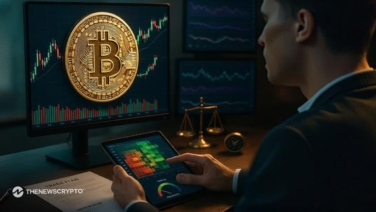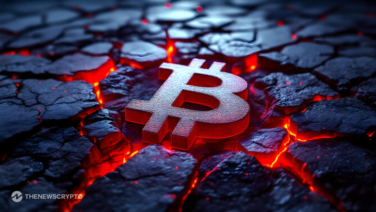- Strategic Bitcoin reserves mark the evolution of national wealth storage beyond gold and fiat.
- Global crypto accumulation could trigger supply shocks and drive long-term value appreciation.
- Early adopters of crypto reserves may gain major economic and technological advantages.
Early in 2025, a revolutionary transition started setting off: the concept of a Strategic Bitcoin Reserve — previously a vision for the future began taking shape. At the federal level, the United States pioneered when former President Donald Trump signed an executive order to form the Strategic Bitcoin Reserve and the United States Digital Asset Stockpile.
In the meantime, over 20 U.S. Countries have already proposed or are debating their own Bitcoin reserve bills, portending an unprecedented trend toward sovereign crypto hoarding.
This is a question that poses a serious challenge: what would a strategic reserve meant for crypto hoarding imply on a global level?
A New Era of Monetary Competition
In the past, countries have kept strategic reserves of commodities such as gold, petroleum, and foreign exchange. The reserves act as a safeguard against market fluctuations and geopolitical uncertainty. Bitcoin, in its 21 million fixed supply, is today being considered from a similar perspective not only as an investment, but also as a strategic national asset.
If nations around the world start to establish official crypto reserves, it would be the start of a new kind of monetary competition. Rather than merely gold reserves supporting strength, Bitcoin and potentially other digital assets might symbolize a country’s financial sovereignty and resilience.
Accelerated Scarcity and Upward Pressure on Prices
Bitcoin’s supply is naturally limited. There will only ever be 21 million BTC. If more central banks and governments begin to buy and lock Bitcoin away in strategic reserves, it would cut sharply into the amount available for public and institutional investment.
This shortage would tend to put constant upward pressure on the price of Bitcoin an effect sometimes called a “supply shock.” In real-world terms, even a relatively small percentage of global GDP being socked away in Bitcoin reserves could drive prices far above current levels.
Legitimization and Institutional Trust
The other significant fallout would be *mainstream legitimacy*. Bitcoin has never struggled with the issue of being “too volatile” or “untrustworthy” for legitimate national application. Government reserves would legitimize crypto assets as real, stable elements of national wealth planning.
This might induce a wave of institutional FOMO (Fear of Missing Out). Pension funds, insurance companies, and large banks, a number of which today hold back, may start to treat Bitcoin like they treat treasury bonds or gold reserves
Financial Inclusion
For poor nations, a Bitcoin reserve might fulfill another function: inflation and devaluation protection. In nations where fiat currencies have already disintegrated (like Venezuela and Zimbabwe), a Bitcoin reserve can be a lifeline, preserving wealth against local economic collapse.
In addition, reserves of Bitcoins would be geopolitically advantageous. Countries that have large reserves of Bitcoins could potentially have leverage in international talks or employ transactions in Bitcoins to bypass the usual financial system dominated by the dollar or the euro.
Possible Dangers and Issues
Of course, dangers also lie there:
– Volatility: Despite growing maturity, the price of Bitcoin remains extremely volatile. Managing a volatile reserve asset is a problem of financial stability.
– Security: Maintaining large Bitcoin reserves involves state-of-the-art cybersecurity. A hack would be disastrous.
– Regulatory Uncertainty: Regulations for cryptos differ widely. There would be a need for globally harmonized standards to deal with state-held digital assets.
States would require robust custody arrangements, transparent frameworks, and advanced strategies to deal with such risks effectively.
To date, nations such as El Salvador the first nation to make Bitcoin legal tender — have been stockpiling Bitcoin through state-funded buys. If it happens with others, early adopters can enjoy a competitive edge both in sustaining wealth and in defining the new digital financial paradigm.
The BITCOIN Act, also suggests the U.S. Treasury buy as much as 1 million BTC over time. It could cement America’s lead role in the crypto age but it also suggests a coming international race for limited crypto supplies.
A strategic crypto reserve is not merely a hedge; it’s a statement of economic sovereignty for the digital era. If sufficient countries implement this policy, Bitcoin would not only be a speculative investment — it would be a pillar of the global financial system.
The countries that recognize this early and act quickly might be in a position of great power, economically and politically, in the decades to come.








